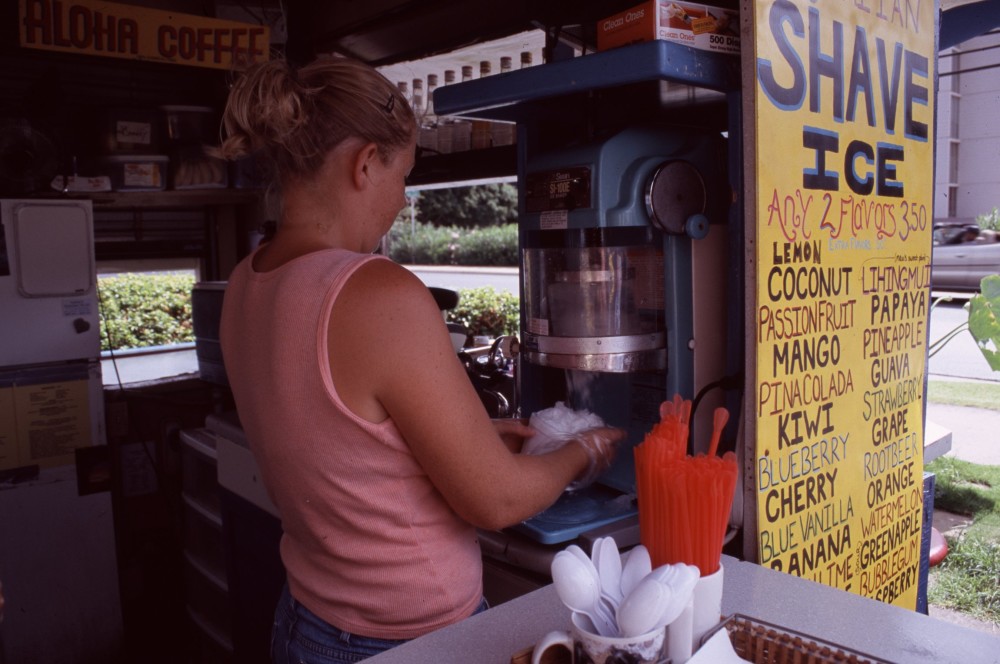By David Zahniser
Los Angeles Times.
For months, Boyle Heights community activist Fanny Ortiz has put her heart into the effort to repeal L.A.’s law against vending on sidewalks.
Ortiz, 41, has repeatedly shown up at meetings and rallies to support the vendors who sell bracelets, flavored ices and other items. Racism, she argues, is behind the effort to keep those mobile entrepreneurs, most of them people of color, from setting up in other parts of town.
“There should be no exceptions,” said Ortiz, who is treasurer of her local neighborhood council. “Legalizing street vendors should be throughout the city of L.A.”
At the opposite end of the city, neighborhood advocate Mark Ryavec has a different take. Vending, he says, is already out of control on the Venice boardwalk, creating noise and blight. If the city’s law is changed, sidewalk sales should only be allowed in places where a majority of property owners have signed off on the idea, said Ryavec, president of the nonprofit Venice Stakeholders Assn.
“I think there should be a very high hurdle before you give public property” over to commercial operations, he said. “It’s a public burden. You have cleanup, you have food waste, you have blockage of pedestrian right-of-way.”
L.A.’s political leaders are slowly moving to craft rules that would govern the outdoor sale of merchandise and foods well-known to many Angelenos — slices of mango spiked with lime juice, hot dogs wrapped in bacon, corn slathered with condiments. But they are being confronted with sharply diverging messages on where, if any place, the vendors should be allowed to operate.
City Councilman Curren Price, looking to reconcile those opposing views, began pushing last week for a system that would legalize vending citywide while allowing some spots to be designated as “no vending zones.” But how those zones would work, how large they might be and whether such a move would undermine the entire system are far from clear.
Officials with Anschutz Entertainment Group — which runs Staples Center and L.A. Live, both in Price’s district — have made clear they want customers to have “unencumbered access” to the sidewalks outside their venues. Business leaders in Hollywood and Westchester say they don’t want outdoor vending at all. And Councilman Paul Koretz, who represents affluent communities stretching from the Westside to Encino, said he cannot think of a single place in his district — which has roughly 250,000 residents — where sidewalk vending makes sense.
“I would hope [council members] will provide the flexibility to allow my council district to opt out,” he said.
Sidewalk vendors have promised a vigorous fight against such restrictions, saying they need to make a living in all parts of the city. Civil rights lawyer Cynthia Anderson-Barker, who represents some vendors, says bias is driving the effort to limit the places street sales can occur.
“It’s racially based, racially motivated and it will further demarcate racial boundaries in our communities,” Anderson-Barker told council members last week.
Sidewalks have become hotly contested political terrain in Los Angeles in recent years. Advocates for the disabled have sued over the city’s failure to maintain its walkways, securing a promise of nearly $1.4 billion in repairs from city leaders.
Groups that represent the indigent have filed lawsuits over the city’s efforts to remove homeless encampments, saying people’s personal belongings have been wrongly seized from sidewalks.
Vendors and their allies filed a separate lawsuit Thursday, saying their carts and wares also have been illegally confiscated by police.
Meanwhile, the ban on sidewalk vending remains a misdemeanor, carrying a fine of up to $1,000. City officials have the discretion to treat such violations as an infraction — meaning jail time is not a possibility — and seek a maximum fine of $100, said Frank Mateljan, spokesman for City Atty. Mike Feuer.
The Los Angeles Street Vendor Coalition, a collection of nonprofit and community groups, has been pushing for more than a year to repeal those laws and impose a new package of regulations to govern sidewalk sales. The group’s proposal calls for vendors to preserve five feet of space for pedestrians and wheelchair users.
Those rules would be undermined if they did not apply in every section of the city, said Rudy Espinoza, executive director of the Leadership for Urban Renewal Network, which belongs to the coalition.
“We shouldn’t have a city of patchwork policies, where everybody chooses whether or not they want to participate,” he said.
“Creating a process for opting in or opting out, that process is cumbersome. Who decides? How do you decide who is at the table?”
Neighborhood councils remain sharply divided on how to proceed. In west San Fernando Valley, the Northridge East Neighborhood Council opposed legalization. Yet a mile to the south, the Lake Balboa Neighborhood Council voted to support city lawmakers as they develop new vending rules, according to city records.
In South Los Angeles, the Central Alameda Neighborhood Council voted unanimously to decriminalize sidewalk vending. Farther west, the neighborhood council for Arlington Heights rejected the idea, saying its members had no confidence that new regulations would be enforced.
Councilman Mike Bonin, who represents coastal neighborhoods, issued a letter last week saying he favors legalization. Yet he also opposes efforts to impose a blanket citywide policy. L.A.’s diverse neighborhoods have different “quality-of-life aspirations,” he said, so each neighborhood should have the power to decide whether to set up special vending districts.
“This process for establishing sidewalk vending in Los Angeles should be community driven, not city driven,” he wrote.
Price, who is spearheading the legalization drive, said he recognizes there are “strong feelings on both sides.” And he acknowledged that some of his colleagues may want to pull their entire districts from a sidewalk vending system.
“I wouldn’t like that, but that’s sort of the reality,” he said.














































































































































































































































































































































































